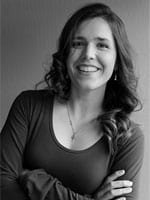
23andMe’s genetic health reports cover 191 rare genetic mutations in addition to more common variants related to disease. While it’s relatively easy to learn about common variants, our knowledge of rare mutations traditionally has come from very small studies limited to specific populations, like French Canadians living in Quebec or people with Ashkenazi Jewish ancestry. 23andMe’s 180,000+ customers, however, provide a unique opportunity to learn about these mutations in a more general population.
Within a large group of 23andMe customers who have consented to participate in research, we see that most of these mutations are indeed most common in the populations that have already been studied, but some are showing up in people whose ancestries have not been linked to that mutation before. I presented data about these mutations in a poster at the annual meeting of the American Society of Human Genetics (ASHG) last week in San Francisco.
Why might these mutations appear in people with ancestries other than those that have been studied? Perhaps our definitions of ancestry aren’t thorough enough and these people do actually have some of the expected ancestry. But it’s also possible that some mutations are present in these other populations and this is simply the first time researchers have documented it.
This second possibility has far-reaching implications. Couples planning to have children are often screened for genetic mutations that could cause inherited diseases in their children. Typically, they are screened for specific mutations thought to be most common in their ancestral group. Our data shows that many mutations can occur in people outside those ancestral groups. Add to that the fact that many people might not know all the details of their ancestry and the argument for broader screening becomes stronger.
Although it is clear that more research is needed, these observations may be an important first step towards better understanding who may be affected by rare genetic mutations.



